Bad Religion's Greg Graffin: the 10 records that changed my life
Punk-rock hero on the albums that shaped his musical outlook

Making Millport
News earlier this year that Bad Religion frontman Greg Graffin was putting out a country album was met with surprise from most corners.
Looking at it today as we listen to said album, the excellent Millport, the decision doesn’t seem quite so left-field. And that’s not because punk rock veteran Graffin hasn’t delivered on the promise; this is a record packed full of country feel, as well as rootsy folk and even gospel.
No, we shouldn’t have been surprised, because Millport actually flows nicely on from Graffin’s previous two solo outings, 1997’s American Lesion and its 2005 follow-up, Cold As The Clay.
“I wanted to build upon what I had done on my other two solo records,” Graffin explains.
“If you could compress time a little bit you’d see them as a pretty logical evolution. The first one was self-written, self-produced and self-recorded. The second one was blending that recording heritage in line with doing a real studio album but doing it in the tradition of the music that was handed down in my family.”
I wanted to do the music that I sing around my house but do it in a recording studio instead of a home recording studio
The songs that Graffin was exposed to during childhood clearly had a big impact on Millport.
“I wanted to do the music that I sing around my house but do it in a recording studio instead of a home recording studio,” he says.
“On Cold As The Clay there were four or five songs that were full band productions and I started gravitating towards those full productions as my favourites.
“On this new album, my producer Brett Gurewitz agreed that we should do a full album of those full productions. It wasn’t a conscious decision to be different; it was simply a refinement of what we had established on previous albums. I’m always writing music in that tradition.”
There is no shortage of sources for lyrical inspiration in 2017 America, so did President Trump’s shadow loom large over Millport, we wonder?
“The political landscape has always been present in my awareness, but the particular political folly going on at this time is no better or worse for inspiring satire or themes,” Greg says.
“For instance, Time Of Need says, ‘No religion can help this time of need.’ That was written before the President decided to run for President. That song goes beyond the politics of the moment and says there is a lot of need in the world and the fact that this President isn’t going to address those needs doesn’t really take away from or add to the power of the song.”
We also wonder whether a solo record gives Graffin an outlet to be a little more personal and reflective in his lyrics, in contrast to the hard-hitting political messages of Bad Religion. Again, we were mistaken.
The political landscape has always been present in my awareness, but the particular political folly going on at this time is no better or worse for inspiring satire or themes
“If I wanted to write a personal or reflective song I would do that with Bad Religion just as much as I would on my solo album. The song Time Of Need on the new record could just as well be a Bad Religion song. It talks about putting the responsibility for change in the world on human shoulders. That sounds like a Bad Religion formula right there.
“The average Bad Religion song is 300bpm, but then some of the bluegrass songs I wrote like Echo On The Hill have a punk tempo. It’s more about production and instrumentation; you don’t use distortion on my solo albums and you don’t have acoustic guitars on a Bad Religion album.”
Speaking of which, we break off from talk of Millport as Greg tells us that new material from the LA punks is in the works.
“Brett [Gurewitz] and I are talking and writing together as we speak. We’re being very cautious because our last record was so good. We want to release something that’s better so we’re being very slow and scrutinising our work, but we are working in that direction.”
The well-spoken Graffin is an engaging interviewee right from the off, conversing with authority on a multitude of topics (as you’d expect for a seasoned musician, author and college lecturer).
Even so, as we press on with the meat of our interview, we find a topic on which he can speak with particular authority. Here, we present the records that changed Greg Graffin’s life.
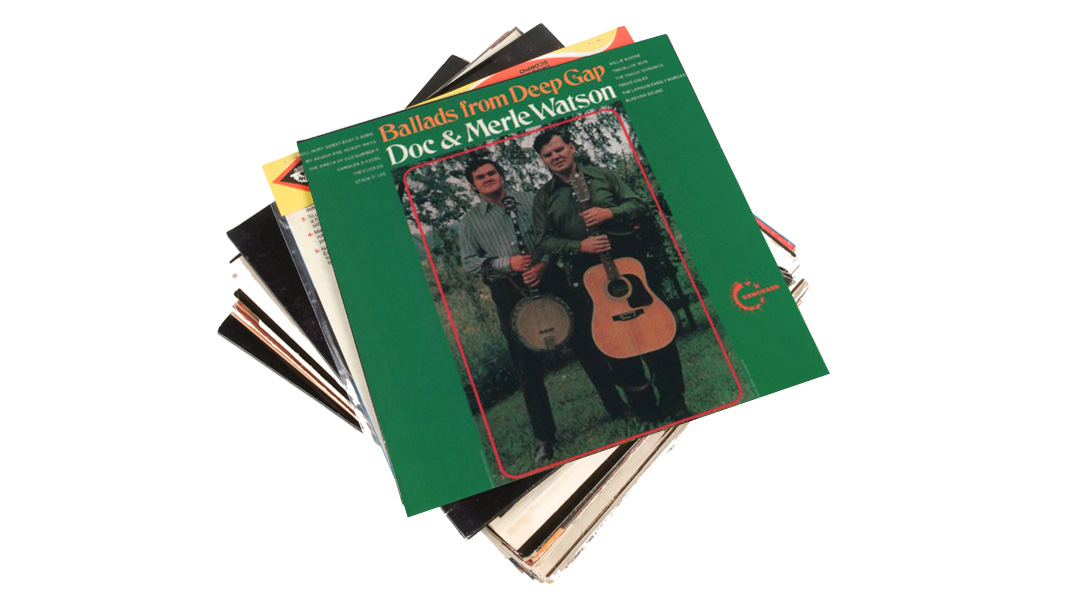
1. Doc Watson - Ballads For Deep Gap (1967)
"I started Bad Religion when I was 15, but my musical awareness goes back to when I was about nine years old.
"I distinctly remember my mom and my uncle handing albums to us and us listening to them. One of those that really changed my life was Doc Watson’s Ballads For Deep Gap. The old-time tradition songs were part of the Doc Watson legacy.
"The Watson family were exceptional musicians, and one of their greatest recordings was the album simply called The Watson Family. This is what I pictured my own family doing, because they were very musical and any time we got together we would all sing these songs - my uncle played guitar and banjo and helped me want to play guitar and banjo. It goes back to the old-time tradition where families would hand songs down to their next generation."
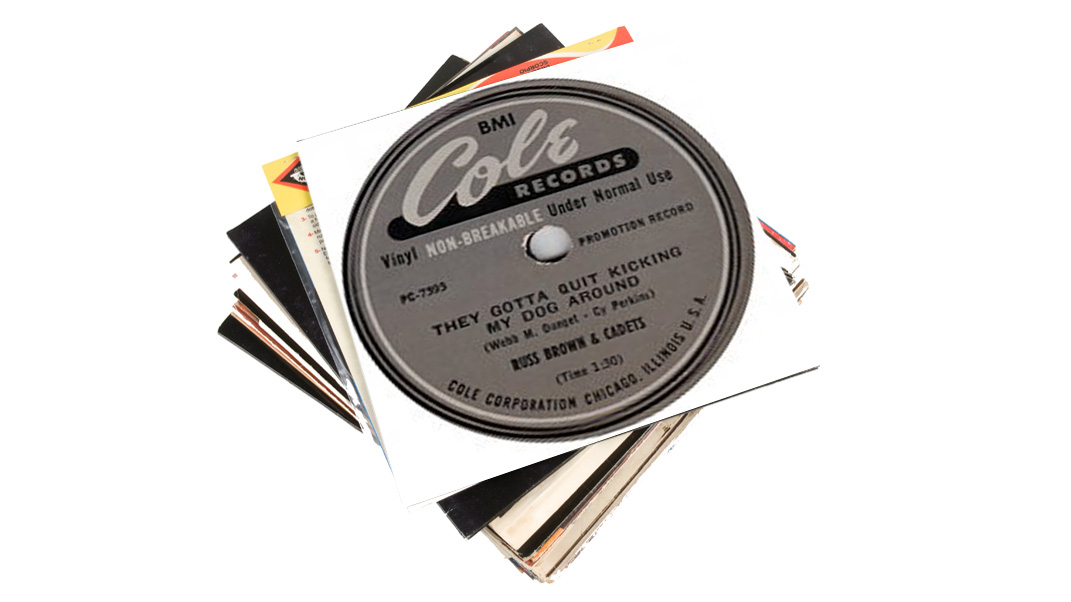
2. Russ Brown & The Cadets - They Gotta Quit Kicking My Dog Around (1926)
"My great-grandfather had a collection of 78 records. One of those was called They Gotta Quit Kicking My Dog Around. Sometimes it’s called the Missouri Dog Song.
"This song was just so fun that not only did my great-grandfather play it to my mom and my uncle, but they learned it on guitar and piano and they played it for us, and now I have played it to my generation of children. It’s one of the most fun tunes, and its original source is from this 78 record from the 1920s."
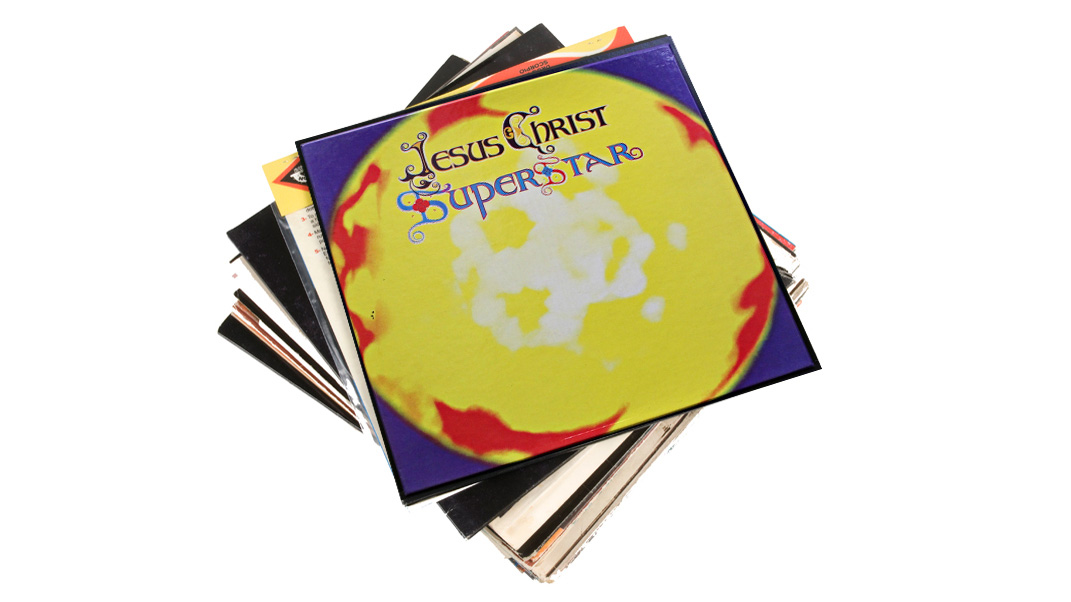
3. Jesus Christ Superstar Soundtrack (1970)
"My mom bought the double album of Jesus Christ Superstar. At that point, I didn’t know anything about Broadway, I didn’t know anything about recording in a studio, but I knew that record sounded so cool.
"My mom’s family was extremely religious, but I had been raised outside of the church, so that album taught me about the bible. My mother, her brother and their whole family could quote the bible.
I took the lyrics to heart and memorised every word on the album. It was performed and sung so beautifully
"I can’t quote anything except some of Genesis. That tends to conflict with my geology background. I read some of it just to see what the original theological ideas about the origin of the earth were.
"But the story of Jesus came to me through this album. I took the lyrics to heart and memorised every word on the album. It was performed and sung so beautifully. That’s probably why I was drawn to heavy music, because Ian Gillan was the character of Jesus."
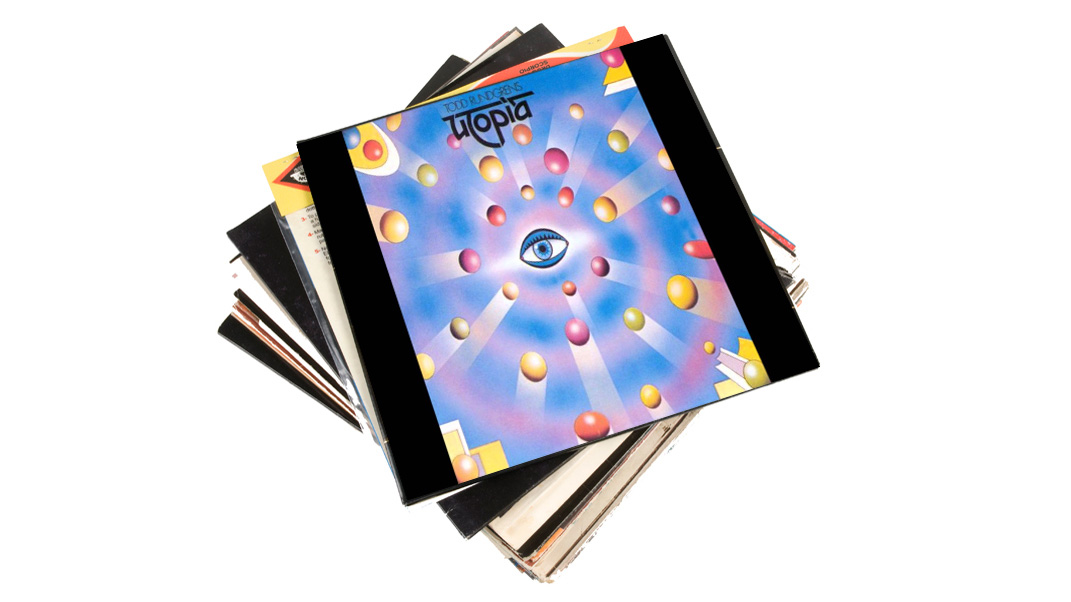
4. Todd Rundgren - Utopia (1974)
"In the ‘70s, if you wanted to distinguish yourself, even as a schoolboy, you had to have good taste in music. That was really important.
"One of my best buddies in third or fourth grade turned me onto Todd Rundgren. That began an exploration of one of the most prolific songwriters and studio magicians of the time. In about 1974, he put out Utopia.
In the ‘70s, if you wanted to distinguish yourself, even as a schoolboy, you had to have good taste in music
"My friend and I scraped together our money and purchased it, but not for ourselves; we bought it and gave it to our music teacher, Mrs Perkins. Mrs Perkins was the first person in my life who told me that I could sing.
"She was very important in my musical education. We thought our taste was so good that we could educate her on the happening artists of the time!"
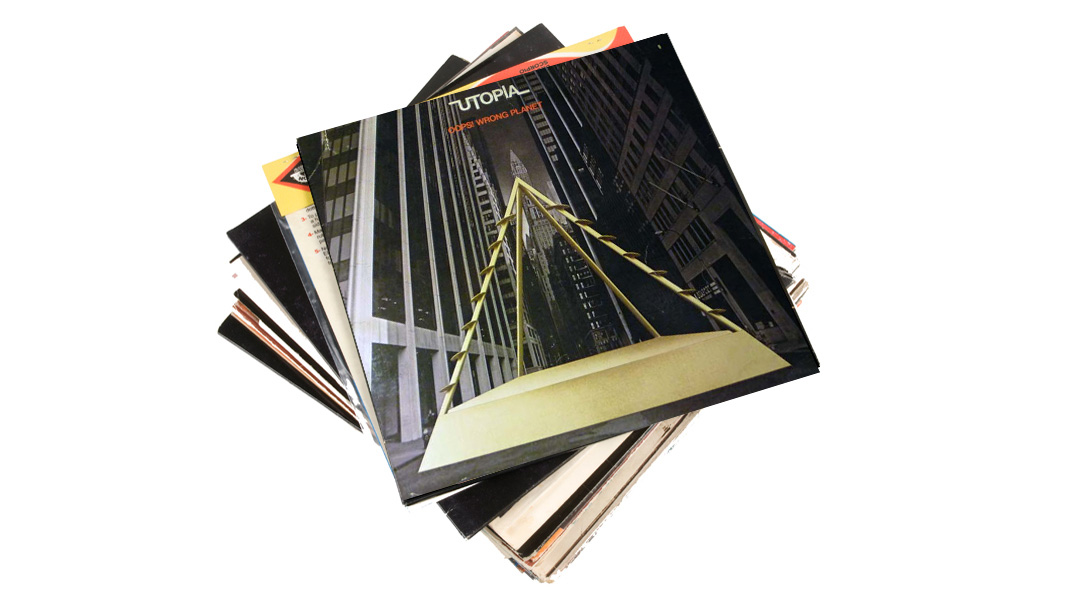
5. Utopia - Oops! Wrong Planet (1976)
"After the Utopia record, Todd Rundgren continued to put out records every year and in 1976 he put out this record with his band Utopia.
"It was a band-orientated album, not a singer-songwriter thing. But, there was great songwriting on there and great production. It was a pretty heavy album. When this album came out I realised that I wanted to be in a band."
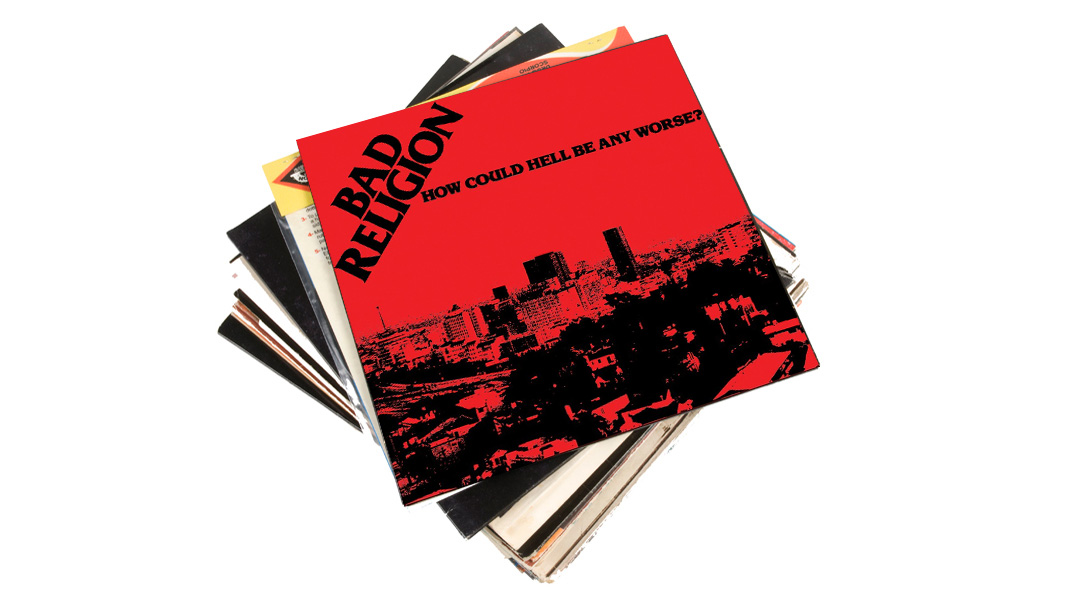
6. Bad Religion - How Can Hell Be Any Worse? (1982)
"I was only 16 when we made this record. By 16, I had discovered the LA punk scene and I wanted to make a record that was part of that scene.
"We were already de facto a part of it because of the geography. But the geography was interesting, because we were also part of the Laurel Canyon sound that was happening in the mid-'70s, and you couldn’t avoid it: it was everywhere. We were inundated with singer-songwriter country rock and California lifestyle music.
“By the same token, we were a bunch of kids who wanted to be part of a more aggressive scene. One of the tunes on there, Latch Key Kids, the riff is basically stolen from Todd Rundgren.
"I told Todd years later that I stole a riff from Oops Wrong Planet and he said, ‘Wow, that’s not the first time someone has ripped me off!’
“But I also borrowed some of the Doc Watson stuff for that album. On there, you hear in the middle of We’re Only Gonna Die, it breaks down into pianos and acoustic guitars. It’s probably the only time in LA punk history that acoustic guitars and pianos were played on an album and that was a direct result of me defaulting to doing what I was raised to do.
"This album allowed me to express myself in a way that was natural to me but was also acceptable to the new culture that I was part of."
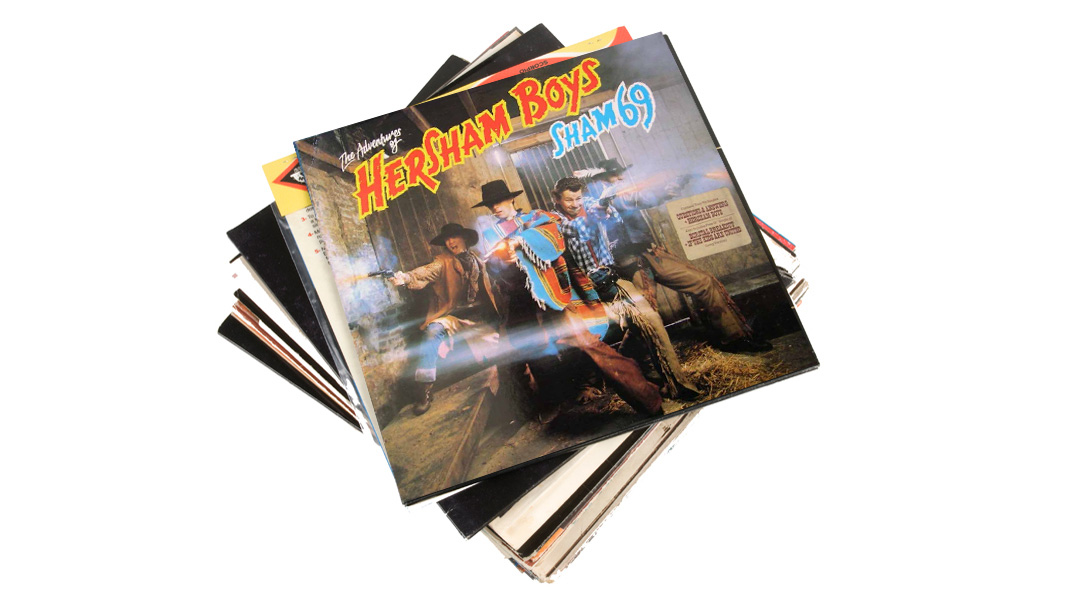
7 & 8. Sham 69 - The Adventure Of The Hersham Boys (1979) and The Game (1980)
“People in the UK might laugh at me for this. If Oops Wrong Planet made me want to be in a band, it was Sham 69 that made me want to be in a punk band.
"We were in a punk scene in Southern California, but we didn’t really have a spiritual leader - it was a diverse scene but with no clear leader. English music got filtered over here; we only got to hear certain stuff in Los Angeles.
If Oops Wrong Planet made me want to be in a band, it was Sham 69 that made me want to be in a punk band
“Of all the stuff we heard, I gravitated to the live recordings of Sham 69. I was really young and didn’t understand anything about the quality of the musicianship but I gravitated to the singer Jimmy Pursey, because he was a very dynamic frontman. Everybody seemed to like him. He didn’t espouse violence, he espoused community. I wanted to be like that.
"Hersham Boys is not seen as one of their best albums, but it was the first one I owned by them. The other album of theirs [The Game] came with the single that had Give A Dog A Bone on it and it had a live version of Unite In Wind. Of all the great music coming from the UK, you would not expect me to choose these!"
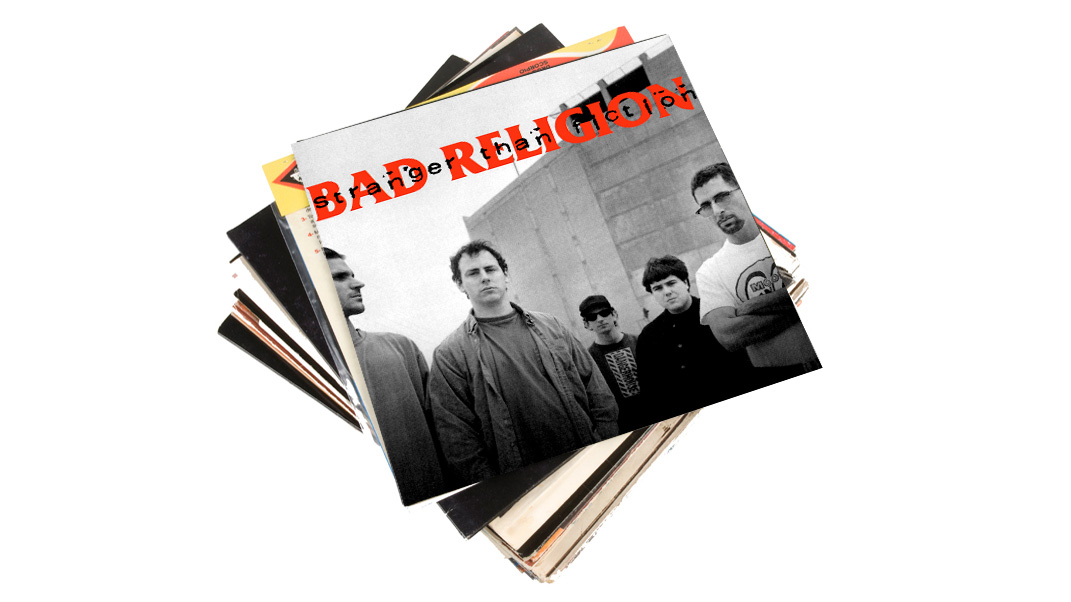
9. Bad Religion - Stranger Than Fiction (1994)
“I have a way of not recognising pressure when it’s around me, but many years later I realised that this was an intense time in songwriting for Bad Religion.
“This album put us on the map in terms of being taken more seriously globally. We were signed to Atlantic in the States and distributed globally by Sony. This album allowed us to travel to every continent. Why is it life-changing to me? It broadened my horizons and made me aware of so many different cultures.”
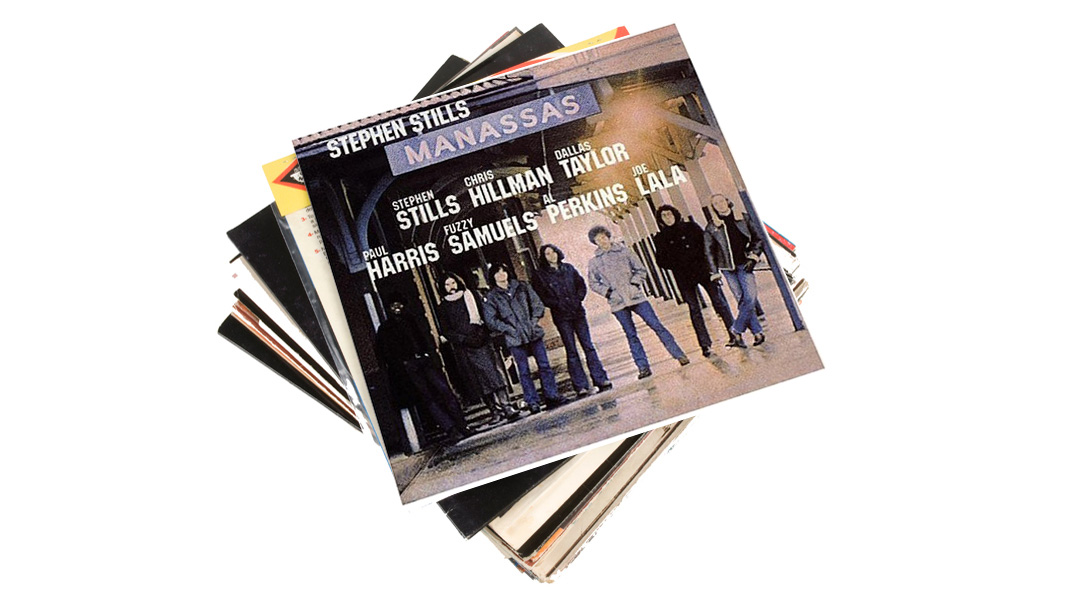
10. Stephen Stills - Manassas (1972)
“Even though it came out in the ‘70s, I didn’t become aware of this album until much later.
"This would be in the era of my budding solo career. Stephen Stills decided to do his own thing and has a series of solo records that depart from Crosby, Stills & Nash but they still have the signature of his songwriting.
"This was a template for me, and it taught me that you can do stuff as side projects that have a lot of integrity and musicality that can be translated to those who love your other work, too.”
Rich is a teacher, one time Rhythm staff writer and experienced freelance journalist who has interviewed countless revered musicians, engineers, producers and stars for the our world-leading music making portfolio, including such titles as Rhythm, Total Guitar, Guitarist, Guitar World, and MusicRadar. His victims include such luminaries as Ice T, Mark Guilani and Jamie Oliver (the drumming one).
